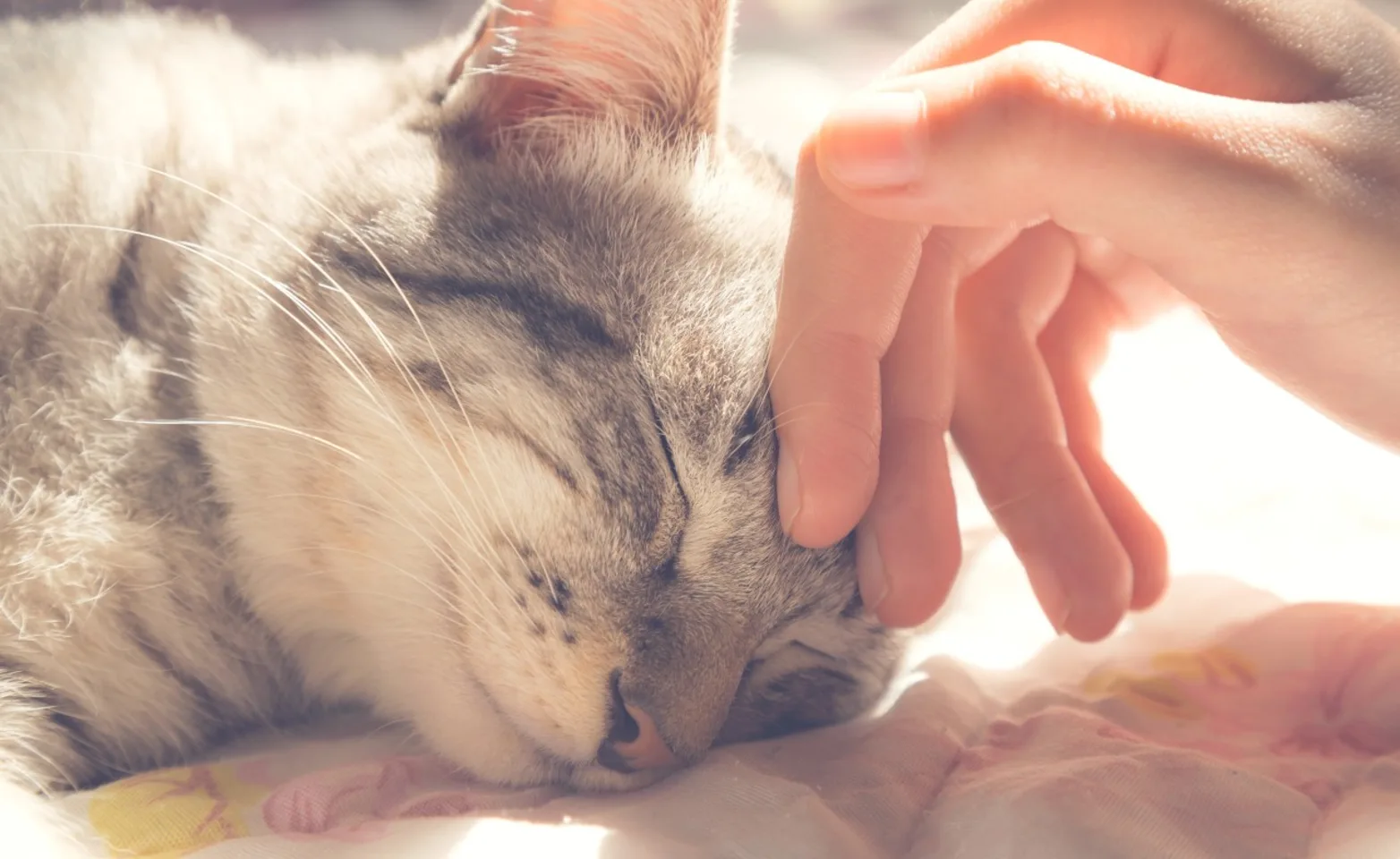Oregon Veterinary Specialty Hospital

We take our role as your and your vet’s partner is your cat’s health seriously. It is important to us that you feel comfortable with the process. Please let us know if you have further questions.
Will my cat be radioactive when they come home?
Yes.
The highest radioactivity occurs here in our clinic. Patients continue to emit logarithmically (very rapidly) decreasing levels of radiation after being released.
Due to I-131’s short half-life (3 days in the cat’s body, 8 days outside of the body), special handling protocols are only in effect for 7 days following discharge, unless an owner is pregnant or there are children in the house (litter avoidance, contact time).
How much radiation will I actually be exposed to?
It is important to follow the aftercare guidelines. When you follow these guidelines, the amount of radiation you will be exposed to is equivalent to that of a roundtrip, cross-country flight.
I have a serious health condition, should I be worried about the radiation exposure?
Unfortunately, we are unable to answer this question for you and encourage you to speak with your healthcare provider about this topic if you have concerns.
We would be happy to provide you with information about our process and aftercare recommendations for you to share with your healthcare provider.
What are the side effects of radioiodine therapy?
The word radioactive is often associated with side effects from radiation therapy that human patients experience.
Fortunately, this does not apply to radioactive iodine treatment. I-131 is a targeted treatment that affects ONLY abnormal thyroid tissue. Because of this, it’s about as risk-free to the patient as a treatment can be!
What if my pet gets ill during their hospital stay? Can you treat them?
Yes!
We will do anything we can to help your pet so long as our facility is capable. Treating a radioactive patient is more involved and expensive. We are also not as likely to have the same success as a traditional hospital stay because of our contact exposure limits.
This is why we recommend testing PRIOR to I-131 in order to find and treat underlying conditions. Cats tend to hide illness from strangers so objective information from testing helps us help your cat.
It’s also important to understand that we do not offer overnight care and that transfer may not be possible depending on your cat’s level of radioactivity.
What if my cat isn’t in the 95% first injection cure rate?
It is important to remember that only 80% of cats are at their normal and final thyroid value at the one-month recheck while 95% are there by 6 months.
Dr. Decker will work with your regular veterinarian to determine the best plan for your cat. We tend to be patient and let the thyroid normalize as long as your cat is doing well clinically, kidney values are stable, and the values are trending appropriately (e.g. thyroid value has decreased by at least 50%.) The less than 5% failure rate encompasses both cats that 1. remain hyperthyroid (one re-treatment offered at 50% of the original price if related to the initial nodule.
NOTE: recommended post I-131 follow-up appointments must be adhered to for this reduced price and 2. those cats who may develop persistent low thyroid (hypothyroidism) and will require daily hormone supplementation.
My cat is nervous when away from home. Can I come visit them?
We are unable to have visitation during the time your cat is in the I-131 isolation or extended stay wards.
We assure you our caring staff makes every effort to give your cat a comfortable stay. We say these kitties get as much love as a radioactive cat can get!
What separation is needed from my other pets and my family members?
It is not necessary to keep your treated cat locked away in its own room or separated from other pets. (this may vary state by state when researching other websites).
There may be individual circumstances where this works best in your home but it is not required. If you do not separate your cats then all waste in the communal boxes must be treated as contaminated and waste management protocols followed.
There are, however, limits on how much time people can spend with the treated pet. Adults must limit close contact (within 1 ft.) to 30 minutes and children for 10 minutes per day for the first 7 days at home. Pregnant women and children should limit their contact with the cat and litter for 2 weeks.
What are the benefits of radioiodine over methimazole medication or y/d diet?
There are 3 main benefits of radioiodine over the alternatives.
Longevity
Cats with hyperthyroidism that are treated with radioiodine live over 3.5 years longer than cats that are treated with methimazole alone in studies. Radioiodine cures the disease and ablates (removes) the abnormal nodule whereas methimazole and y/d diet allow the nodule to keep growing.
This leads to more uncontrolled hyperthyroidism throughout the years, which can damage the heart and kidneys. The nodule has the potential to grow beyond where medicine or radioiodine can control hyperthyroidism.
Even more concerning is the conversion into a cancerous tumor. This may require very high I-131 doses at a special university facility.
Financial
Radioiodine has the additional benefit of potentially costing the owners up to thousands of dollars less than medical management (i.e. methimazole or y/d therapy) of hyperthyroidism over their cat’s lifetime.
Medication and food, exams, and lab work costs $700-$1000 a year depending on the fee structure of your veterinarian.
Six years of medical or prescription diet management costs about $5000-$6000.
Radioiodine therapy + consult costs ~$1700 - $3000 depending on the length of stay and pre-I-131 diagnostics chosen at our facility.
Pre- and post-testing at your veterinarian are not included in the cost estimate.
Human-animal bond
Some cats do not take medications easily, which can alter their bond with their family. With our 95% cure rate, we love that more cats get to spend more time just being loved instead of medicated.
